Female Weight Control
Achieving your weight goals isn’t just about willpower — your internal health plays a major role too.
Shatter Weight Frustrations: Reveal Hormones, Metabolism, and Nutrients Unique to Women’s Bodies
Dieting diligently but seeing no shift – or curves changing in ways that don’t feel right? For women, estrogen dips, thyroid slowdowns, or stress cortisol can override efforts, causing bloating, fatigue, or stubborn hips/belly fat. Our Female Weight Control Blood Test uncovers thyroid, insulin, estrogen, and vital nutrients to decode barriers and ignite sustainable change.
A nurse performs a gentle venous draw at home, results in 7 days – the personalised blueprint to harmonise hormones and embrace your strongest self.
The Women’s Weight Struggle – Why Hormones and Life Stages Turn Efforts Against You
Women’s bodies navigate cycles, pregnancies, and menopause, where estrogen fluctuations slow metabolism or cortisol from juggling work/family packs on visceral fat. Underactive thyroids compound this with bloating and low energy, while insulin resistance (from stress or PCOS) spikes cravings and diabetes risk. Nutrient shortfalls like vitamin D or iron further drain vitality, making workouts futile and moods volatile – hair thinning, acne, or midsection woes persisting despite salads and spins.
It’s demoralising: Hard work yields inches gained, not lost, leaving self-doubt in the mirror. Without testing, you’re blind to imbalances like perimenopausal shifts or folate gaps; but insights guide fixes, often restoring balance in months. “Post-baby weight wouldn’t budge – low estrogen and thyroid explained it; now I’m thriving.” – Emma W., Nottingham.
Empower your body – knowledge turns ‘stuck’ into ‘sculpted’.
Who Should Take the Female Weight Control Blood Test? If Plateaus Persist, This Empowers You
Crafted for women facing weight hurdles amid life’s demands. Test if you’re:
- Grappling with unexplained gain or loss resistance, particularly hormonal areas like hips or abdomen?
- Enduring low energy, fatigue, or cycle-tied slumps impacting daily drive?
- Spotting signs like hair thinning, acne, irregular periods, or muscle softness?
- Navigating mood dips, sugar cravings, or emotional eating from cortisol/insulin flux?
- Desiring metabolic clarity for perimenopause, PCOS, or post-pregnancy goals?
- With history of thyroid, diabetes, or deficiencies affecting body confidence?
Test amid challenges; retest every 6-12 months for hormonal shifts, stress, or progress checks.
What Your Female Weight Control Blood Test Reveals – Tailored Insights for Women’s Metabolism
Our accredited UK lab analyses your venous sample for a female-focused panel, yielding a PDF report with highlights, trends, and women-specific notes (e.g., cycle impacts). Grouped for relevance:
Thyroid Function (Metabolic Core):
- Free Thyroxine (Free T4): Thyroid hormone for calorie processing; lows signal hypothyroidism bloating weight.
- Free T3 (FT3): Active form boosting energy; imbalances explain fatigue or hyper symptoms.
- Thyroid Stimulating Hormone (TSH): Pituitary regulator; elevations indicate slowdowns unique to women.
Liver & Kidney Health (Hormone Processing):
- Bilirubin, Albumin, Globulin, Alkaline Phosphatase (ALP), Alanine Transaminase (ALT), Gamma-Glutamyl Transferase (GGT), Total Protein, Aspartate Aminotransferase (AST): Monitor liver’s role in estrogen detox and protein balance; flags strain from meds or cycles.
- Creatinine, Urea, Estimated Glomerular Filtration Rate (eGFR): Kidney efficiency; ties to hydration, muscle, or dehydration affecting fat metabolism.
Hormonal & Metabolic Markers (Body Composition):
- Oestradiol (Estrogen/E2): Regulates fat distribution, cycles, fertility; lows (e.g., menopause) slow burn, cause mood/weight shifts.
- Cortisol: Stress responder; highs drive belly fat, cravings in busy women.
- Testosterone: Minor in women for muscle/tone; imbalances link to PCOS fat or energy dips.
- HbA1c: 3-month sugar average; highs flag resistance, perimenopausal risks.
Nutrients (Vitality Boosters):
- Ferritin: Iron reserves; lows cause anaemia fatigue, common in women.
- Total Vitamin B12: Nerve/cell support; deficiencies worsen tiredness.
- Total Vitamin B9 (Folic Acid): Growth/DNA aid; shortfalls affect mood, energy.
- Vitamin D Levels: Bone/hormone ally; UK lows exacerbate weight, PMS.
Report suggests female-tuned actions, like estrogen-friendly tweaks.
Tailor Your Weight Plan – Female-Focused Steps from Your Results
Insights fuel empowerment – adapt for cycles or stages; consult GP/dietitian first:
- Thyroid/Insulin Harmony: Low T3/TSH or high HbA1c? Cycle-sync carbs (follicular phase higher), yoga for stress; meds if hypo.
- Hormone Tune (Estrogen/Cortisol/Testosterone): For low E2, phytoestrogen foods (soy, flax); cortisol calm with walks/sleep. PCOS? Balanced fats (avocado) for androgen balance.
- Nutrient Nourish: Low ferritin/B12? Leafy greens, fortified cereals + C; B9 from citrus/legumes. Vitamin D: Sun/supps (10-25mcg), fatty fish for mood lift.
- Liver/Kidney Care: Herbal teas, 2L water daily; cruciferous veg (broccoli) for detox, supporting female hormone flow.
Retest to celebrate; women often report balanced cycles and 4-8% fat loss in 3 months.
What You Might Be Wondering – Honest Insights Inside
- Too many factors? We prioritise women-relevant ones (e.g., estrogen’s fat role) in summaries – actionable without overwhelm.
- Relevant for my stage? Yes – from PCOS to menopause; report flags life-phase ties.
- Home process gentle? Nurses trained for comfort; private for body image concerns.
- All normal? Affirmation – fine-tune habits; retest post-changes or cycles.
Rediscover your glow – start informed.
Testing for Female Weight Control
✅ Over 2,000 tests completed across the UK
✅ Trusted by patients, athletes, and health-conscious professionals
✅ NHS-comparable testing standards
✅ 100% secure and confidential
How often should I have a female weight control blood test
We recommend checking your hormone levels if if you cannot solve your weight control challenges.
Nurse appointments fill up fast — book now to secure your preferred date.
Other Questions
- Experiencing unexplained weight gain or difficulty losing weight
- Struggling with low energy or persistent fatigue
- Noticing hormonal symptoms like hair thinning, or acne
- Dealing with mood changes, cravings, or stubborn fat around the midsection
- Wanting a deeper understanding of your overall metabolic and hormonal health
- Finding it hard to lose fat, gain weight, or build muscle
This blood test is to check on:
- Thyroid function
- Kidney Health
- Liver Health
- Hormones
- Diabetes
- Vitamins
- Ferritin
For best results (if medically suitable) it is advisable to fast (water is allowed) 12 hours prior to the test.
Collection method: Venous blood
Results available: 1-2 days after the sample has reached the laboratory.
Free Thyroxine (Free T4)
This test will measure the amount of free thyroxine in your blood, it will measure how well your thyroid gland is working. T4 is one of the major thyroid hormones in your blood. If the results are too high or too low it can indicate thyroid disease.
Free T3 (FT3)
This test measures the level of triiodothyronine (T3) in your blood. T3 along with T4 are the two major thyroid hormones in your blood. T3 blood test may be used to diagnose hyperthyroidism. If the results are too high or too low it can indicate thyroid disease.
Thyroid Stimulating Hormone (TSH)
This test will measure how much TSH is in your blood.TSH is made in your pituitary, (a gland in your brain) when your thyroid levels are low the pituitary gland makes more TSH and when the thyroid levels are high your pituitary makes less TSH This result indicates how well the thyroid is working.
Bilirubin
Bilirubin is the end product of the breakdown of red blood cells (haemoglobin) It is produced in bone marrow cells and the liver. Bilirubin is a brownish yellow substance and is found in bile which is a fluid in your liver which helps breakdown food. It is excreted through urine and faeces.
The blood test measures the amount of bilirubin in your blood.
Albumin
Albumin, also known as ALB, is a protein made by your liver. Albumin is used to carry hormones, vitamins and enzymes around the body and keep fluid in your
bloodstream to avoid leaking into other tissues.
Globulin
Globulins are a serum protein needed for our growth and development and overall health.
They are produced in the liver and immune system. Different proteins make up the globulin family and many bind with haemoglobin in the blood. Some are involved in the transportation of metals such as iron, whilst others are part of the immune system to help fight infections.
Alkaline Phosphatase (ALP)
Alkaline Phosphatase known commonly as ALP is an enzyme mainly found in the liver, kidneys, bones and digestive system.
The test measures the ALP in your blood.
Alanine Transaminase (ALT)
Alanine Transaminase, known as ALT, is an enzyme most commonly found in the liver. Damaged liver cells release ALT into the bloodstream.
The test measures the amount of ALT in the blood.
Gamma-Glutamyl Transferase (GGT)
Gamma-glutamyl transferase, commonly known as GGT, is an enzyme found throughout the body, however it is most commonly found in the liver.
The test will measure the amount of GGT in the blood.
Total Protein
Proteins are important building blocks for the health and growth of the body’s cells and tissues.
A total protein test measures the amount of albumin and globulin in your body.
Oestradiol/Estrogen/E2
This test measures the Oestradiol in your blood.
Oestradiol also known as E2 is the main form of estrogen in women of reproductive age. It’s a powerful hormone that plays a key role in regulating the menstrual cycle, supporting fertility, and maintaining overall reproductive health.
Aspartate Aminotransferase (AST)
Aspartate Aminotransferase (AST) is an enzyme found in the liver and other tissues. A blood test measures AST to help detect liver damage or other organ injury.
Creatinine
Creatinine is usually passed out through urine. It is a breakdown of waste products made from the muscles.
A high level may be indicative of a kidney problem, however this does depend on muscle mass. Usually if a high muscle mass the creatinine may be higher. If levels are low it could be due to a low protein diet or reduced muscle mass.
Urea
Urea is usually passed out through urine. It is a waste product from the breakdown of amino acids found in proteins.
Higher than normal levels may be indicative of a kidney problem, low levels may be indicative of dehydration.
Estimated glomerular filtration rate (eGFR)
This test will assess how well your kidneys are working.
Cortisol
A cortisol blood test measures the level of cortisol which is a hormone made by your adrenal glands. A cortisol blood test helps assess your body’s stress response and adrenal health, and can uncover hormone imbalances that affect your overall wellbeing.
Testosterone
Testosterone is the primary sex hormone and anabolic steroid in males. It plays a major role in the reproductive tissues such as the prostate and testes. In women it is produced in the ovaries in small amounts and aids the reproductive system.
HbA1c
HbA1c also known as glycated haemoglobin or glycosylated haemoglobin. This test will measure how well your blood sugar level has been controlled over the past 3 months. The results can be indicative of pre or Type 2 diabetes.
Ferritin
Ferritin is a blood protein which stores iron. A ferritin blood test will show if you have too much or too little iron in your body.
Total Vitamin B12
Vitamin B12 is needed in the production of red blood cells, for brain health and to keep nerves healthy, and aids in the making of DNA.
Low levels may indicate anaemia.
Total Vitamin B9 (Folic Acid)
Total Vitamin B9 (Folic Acid) measures the amount of folic acid in your blood, which is essential for healthy cell growth, DNA production, and preventing anemia.
Vitamin D levels
This test will measure the levels of Vitamin D in your body.
How it Works
1. Order a Test
Order your test, and then Answer the Questions about why you’re taking that test.
Our nurse will contact you for dates, so they can take your blood sample at your home.
Our nurse will then send your sample to our laboratory.
2. Our laboratory team run the tests
Our skilled laboratory staff conduct your blood tests in a clean and secure environment, ensuring accuracy and reliability.
Each test follows strict protocols to maintain the highest quality standards.
3. Receive Your Results within 7 days
We will email you to inform you that your blood test results are ready.
The email will have a PDF report attached, sent directly to your inbox.
4. Monitor your levels over time
With regular ongoing tests and reports, you can track your results. The reports can be shared with your GP.
Check if you’re improving healthily or where changes could be made.






